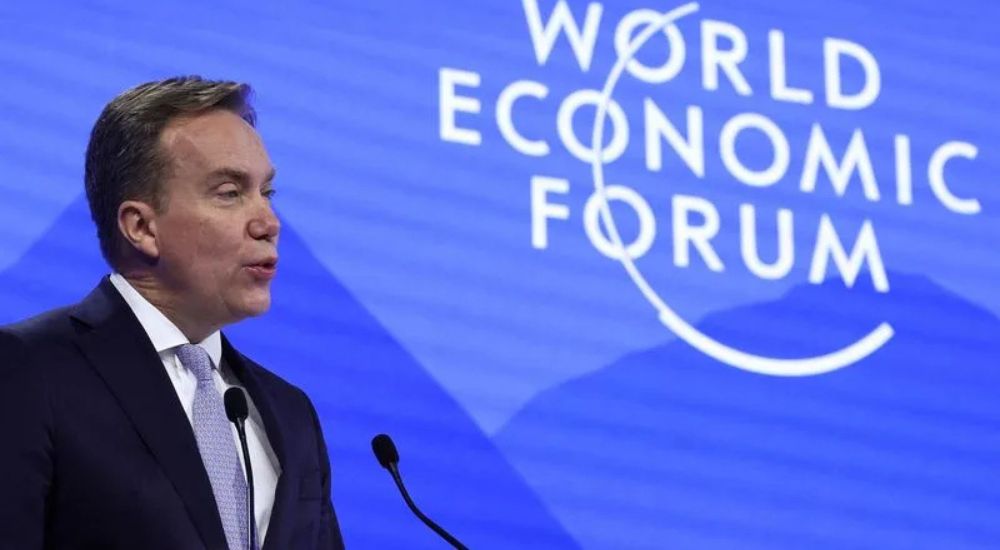AI, Crypto, Debt Bubbles Could Trigger Another Financial Crisis—WEF President
The President of the World Economic Forum (WEF), Børge Brende, has warned that the world may be heading toward three potential financial bubbles in artificial intelligence (AI), cryptocurrencies, and global debt, as market optimism continues to push valuations to unsustainable levels.
Speaking to reporters on Wednesday, Brende said that while innovation and technology are driving new economic opportunities, excessive speculation and record public borrowing could threaten long-term financial stability.
“We could possibly see bubbles moving forward. One is a crypto bubble, the second an AI bubble, and the third would be a debt bubble,” Brende said.
“Governments have not been so heavily indebted since 1945.”
His comments come amid sharp declines in global technology stocks after months of strong gains fuelled by enthusiasm for AI-driven productivity growth and expectations of an economic rebound.
Analysts say that while recent market corrections are not yet a cause for panic, investors should be cautious as valuations, particularly in the tech and digital asset sectors, appear stretched.
Advertisement
Brende noted that markets have largely shrugged off concerns over elevated interest rates, persistent inflation, and global trade disruptions, factors that, he cautioned, could amplify the risks of asset overvaluation if left unchecked.
The WEF president, whose organisation is best known for its annual meeting in Davos, Switzerland, said the ongoing boom in AI carries both promise and peril.
While the technology could significantly enhance productivity and reshape industries, it may also displace millions of white-collar jobs in advanced economies.
“What you could, in the worst case, see is a ‘Rust Belt’ in big cities that have a lot of back offices with white-collar workers who can more easily be replaced by AI and increased productivity,” Brende said, citing recent job cut announcements from multinational firms such as Amazon and Nestlé.
Despite these risks, Brende acknowledged that technological change has historically led to long-term gains in productivity and prosperity.
Advertisement
“We also know from history that technological changes over time lead to increased productivity, and productivity is the only way over time to increase prosperity,” he said.
“Then you can pay people better salaries, and you have more prosperity in society.”
Analysts and economists have echoed Brende’s concerns, warning that a combination of speculative investment in AI and cryptocurrencies, coupled with mounting government debt, could mirror past financial crises if global regulators fail to act preemptively.
Recent data shows global government debt at record highs, surpassing levels last seen after World War II. Meanwhile, investor sentiment around AI-related stocks has pushed technology indices to near-record valuations, reminiscent of the dot-com bubble of the late 1990s.
The World Economic Forum has repeatedly called for stronger global cooperation to balance technological innovation with economic resilience. Brende reiterated this message, urging policymakers to implement prudent fiscal and monetary measures to mitigate emerging risks while ensuring that the benefits of new technologies are widely shared.
“The challenge”, he said, “is to make sure innovation drives inclusive prosperity, not instability.”
Advertisement
Brende’s warning underscores growing unease among global policymakers that excessive exuberance in financial markets could create vulnerabilities, even as AI and digital technologies promise to reshape the global economic landscape in the years ahead.

